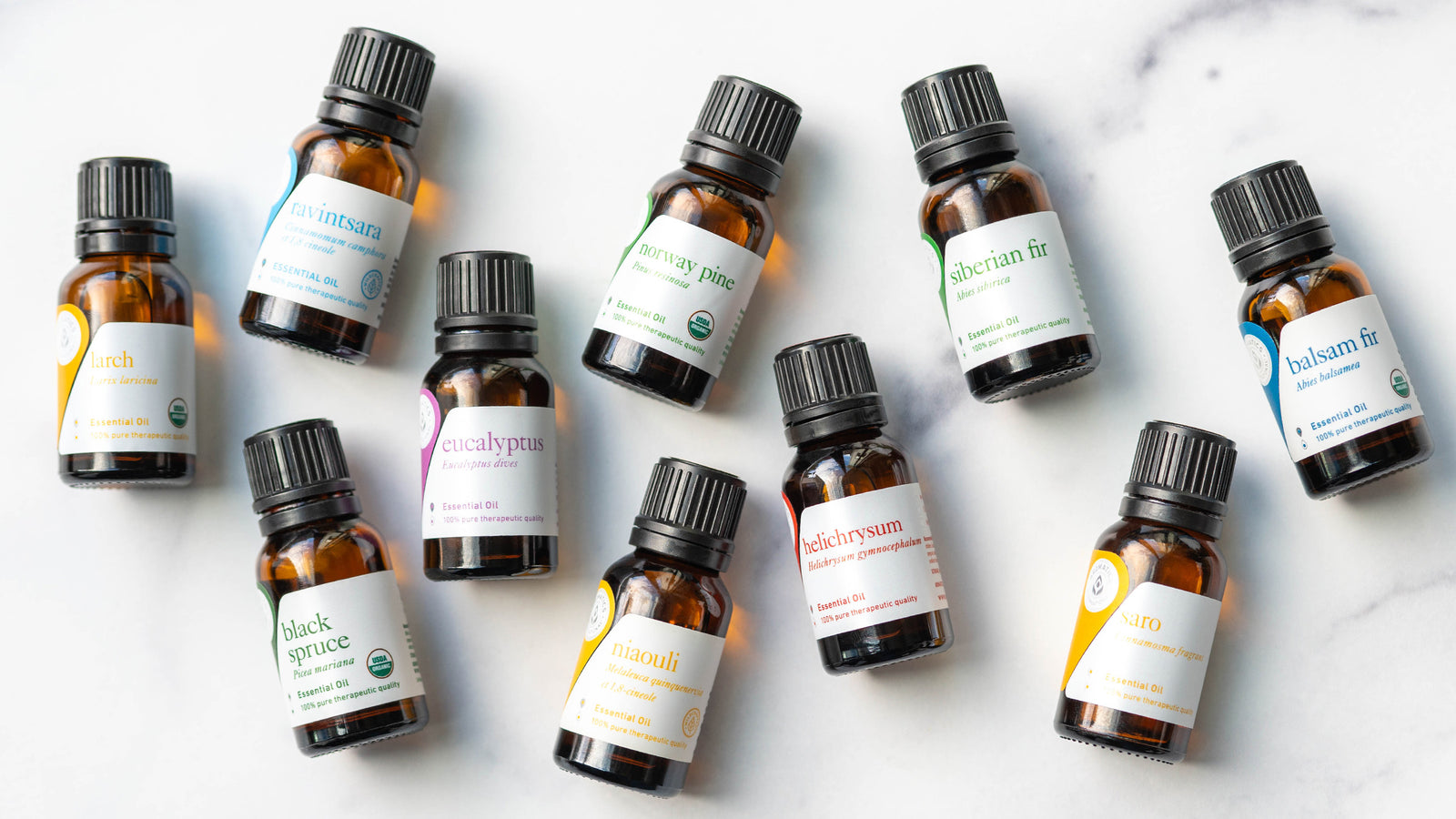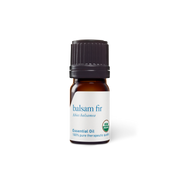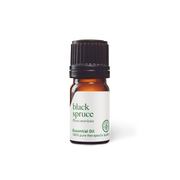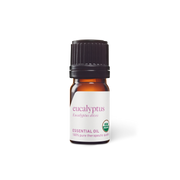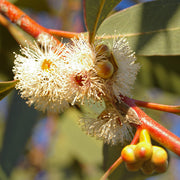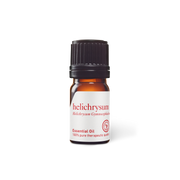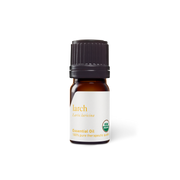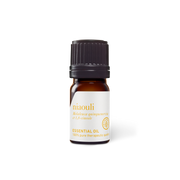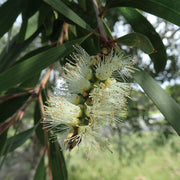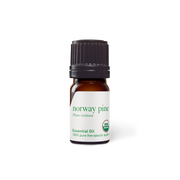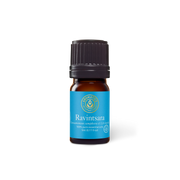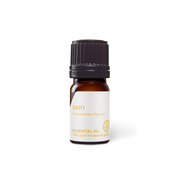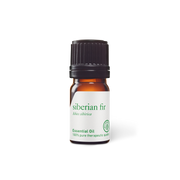Imagine the relief of inhaling fresh, clean air, your lungs expanding effortlessly. This simple pleasure can sometimes feel elusive, especially during the cold and flu season. But it's not just limited to those challenging times. What if you could improve your respiratory health all year round?
This is where essential oils come into play. They are concentrated plant extracts with various therapeutic properties that can support easier breathing and overall lung health.
In this blog post, we’ll talk about 10 essential oils that can aid in easier breathing, not only during the cold and flu season, but also throughout allergy season, and any time your breathing could use a boost. We'll explore their benefits and share 30 DIY recipes (that’s a lot of recipes!!) using these essential oils for maintaining healthy lungs and effortless breathing, whatever the season.
10 Oils + 30 DIY Recipes for Easier Breathing
Essential oils have been a cornerstone of traditional medicine for centuries, offering a multitude of health benefits. Their support for respiratory health is particularly noteworthy. With properties ranging from antimicrobial to anti-inflammatory, essential oils can provide relief and promote easier breathing, not only for those dealing with respiratory issues, but for anyone seeking to enhance their overall lung health. This is especially beneficial during the cold and flu season, but the advantages extend throughout the year.

Interestingly, a significant number of these powerful essential oils are derived directly from various parts of trees, often personified as the "lungs" of the planet. This includes the needles and leaves of fir trees, pine trees, spruce trees, and the globally recognized eucalyptus trees.
Each part of these trees, from their aromatic leaves to their richly scented needles, is meticulously harvested and processed to extract the essential oils. These oils encapsulate the potent therapeutic properties of these natural resources, making them an integral part of our respiratory health toolkit.
We will explore the extraordinary properties of the following essential oils that can alleviate respiratory problems and improve overall lung health. Here are ten remarkable essential oils that can facilitate effortless breathing.
- Balsam Fir Oil
- Black Spruce Oil
- Eucalyptus Dives Oil
- Helichrysum Oil
- Larch Tamarack Oil
- Niaouli Oil
- Norway Pine Oil
- Ravintsara Oil
- Saro Oil
- Siberian Fir Oil
Read on to discover how these oils may be your key to better breathing. And be sure to incorporate the provided recipes into your aromatherapy routine.
1. Balsam Fir Oil
Latin name: Abies balsamea
Plant part: Needles
Starting off our list, we have balsam fir oil. This natural remedy is a powerhouse for combating the occasional respiratory issues, offering the following advantages:
- Anti-inflammatory properties
- Expectorant properties that help clear airways
- Improved lung function
- Alleviation of coughs, colds, and other respiratory discomforts
Balsam fir oil contains natural compounds like β-pinene, α-pinene, and limonene, which can help open up airways, reduce inflammation, and ease respiratory issues. It also includes bornyl acetate, which may relax respiratory muscles, and other components with antimicrobial properties that can support respiratory health.
Recipe ideas:
2. Black Spruce Oil
Latin name: Picea mariana
Plant part: Needles
Black spruce oil is known for:
- Its anti-inflammatory properties and antispasmodic properties
- Helping alleviate respiratory issues such as bronchial asthma, bronchitis, and allergic airway inflammation
- Clearing mucus
- Reducing inflammation
- Opening up airways for easier breathing.
Black spruce oil contains natural compounds like α-pinene, δ-3-carene, and camphene, which opens up breathing, reduces inflammation, and eases respiratory discomfort. It also includes 1,8-cineole, known for promoting clear breathing.
Recipe ideas:
3. Eucalyptus Dives Oil
Latin name: Eucalyptus dives
Plant part: Leaves
Eucalyptus dives oil, derived from the leaves of the eucalyptus tree, is a popular natural remedy for respiratory issues thanks to its antimicrobial and anti-inflammatory properties. Inhaling eucalyptus may help clear congestion, making it easier to breathe by opening up airways and reducing inflammation in the respiratory system. It is also commonly found in holistic remedies such as chest rubs, salves, and steam blends, which are ideal for supporting respiratory health.
Eucalyptus dives oil eases congestion and aids breathing by removing mucus with compounds like piperitone and α-phellandrene. It fights infections with terpinolene and terpinen-4-ol, while 1,8-cineole (eucalyptol) clears airways and relieves discomfort.
Recipe ideas:
4. Helichrysum Gymnocephalum Oil
Latin name: Helichrysum gymnocephalum
Plant part: Flowers
Helichrysum gymnocephalum oil is another essential oil with anti-inflammatory and expectorant properties, making it beneficial for alleviating respiratory issues and improving lung function. It possesses antimicrobial properties that can help combat colds and coughs, as well as reduce inflammation in the airways and nose.
Helichrysum oil contains a substantial amount of 1,8-cineole, a well-known compound for supporting respiratory health. It helps clear airways, eases breathing discomfort, and has properties that can break down mucus and fight inflammation. Additionally, helichrysum oil may help reinforce veins and support healthy circulation, further enhancing its respiratory benefits.
Recipe ideas:

5. Larch Tamarack Oil
Latin name: Larix laricina
Plant part: Needles
Larch tamarack oil is known for its invigorating and refreshing effects, providing relief from congestion and soothing respiratory discomforts. Its key components, such as bornyl acetate and camphene, aid in loosening up mucus in the lungs, making it easier to breathe and expel phlegm.
Larch oil contains compounds like α-pinene and δ-3-carene that can help open up airways, reduce inflammation, and ease respiratory discomfort. It also includes terpinen-4-ol, known for helping to fight off respiratory infections.
Recipe Ideas:
6. Niaouli ct 1-8 Cineole Oil
Latin name: Melaleuca quinqeunervia ct 1,8 cineole
Plant part: Leaves
Niaouli oil is another powerful essential oil with antiviral, antibacterial, and antifungal properties, making it effective in helping alleviate symptoms of respiratory infection and improving overall respiratory health. It can help activate the immune system, aid in managing sinusitis and rhinitis, and provide relief for respiratory issues.
Like helichrysum oil, niaouli ct 1-8 cineole oil contains a significant amount of 1,8-cineole (as it's name suggests), which helps clear airways, eases breathing discomfort, and can break down mucus, making it easier to breathe.
Recipe ideas:
7. Norway Pine Oil
Latin name: Pinus resinosa
Plant part: Needles
Norway pine oil is a versatile essential oil with antimicrobial and expectorant properties that can help improve respiratory health and discourage breathing difficulties. It can facilitate clear and natural breathing, assist in loosening phlegm in the lungs, and provide comfort for sore throats.
Norway Pine Oil contains compounds like α-pinene and β-pinene that often help open up airways and make breathing easier. It also includes δ-3-carene, which may reduce inflammation in the respiratory tract, and α-terpineol, known for relaxing bronchial muscles.
Recipe ideas:
8. Ravintsara Oil
Latin name: Cinnamomum camphora ct 1,8 cineole
Plant part: Leaves
Ravintsara oil is a potent essential oil for respiratory health. It has the following benefits:
- Antiviral properties
- Expectorant properties
- Provides relief for coughing
- Soothes the throat
- Relieves symptoms of colds, bronchitis, and sinusitis
Ravintsara oil contains compounds like 1,8-cineole, sabinene, and α-pinene, which can help open up airways, ease congestion, and promote better breathing. It also includes α-terpineol, known for relaxing respiratory muscles, and terpinen-4-ol, which can assist in fighting respiratory infections.
Recipe ideas:
9. Saro Oil
Latin name: Cinnamosma fragrans
Plant part: Leaves
Saro oil can help alleviate coughs, colds, and other respiratory illnesses, as well as support the immune system and provide antiviral and antimicrobial benefits.
Saro oil contains compounds like limonene, linalool, and 1,8-cineole that can reduce inflammation, ease congestion, and promote clear airways for better breathing. It also includes terpinen-4-ol, which can fight respiratory infections, and α-terpineol for relaxing bronchial muscles.
Recipe ideas:
10. Siberian Fir Oil
Latin name: Abies sibirica
Plant part: Needles
Siberian fir oil, also known as Siberian fir needle oil, is a powerful essential oil for respiratory health, boasting antiseptic, anti-inflammatory, and decongestant properties that make it helpful for relief when experiencing a respiratory infection. It has been used traditionally in parts of Siberia as a natural remedy to alleviate colds and coughs.
Siberian fir oil contains compounds like camphene, limonene, α-pinene, and δ-3-carene, which can help open airways, reduce inflammation, and ease congestion, promoting better respiratory health. It also includes bornyl acetate and β-caryophyllene, which may provide relief from respiratory discomfort and reduce inflammation.
Recipe Ideas:
How Essential Oils Support Respiratory Health

Essential oils benefit respiratory health in various ways, thanks to their unique chemical compounds and therapeutic properties. One of the most notable benefits is their ability to reduce inflammation in the respiratory system, which can help alleviate symptoms of conditions such as asthma, bronchitis, and sinusitis.
Another major advantage of some of the best essential oils, such as ravintsara essential oil, is their antimicrobial properties, which can help combat bacteria, viruses, and fungi responsible for respiratory infections. Essential oils may support a healthier respiratory system by inhibiting the growth of these harmful microorganisms and preventing further complications.
Additionally, essential oils can help activate the limbic system, responsible for modulating physiological functions such as heart rate, breathing, and blood pressure, further enhancing their respiratory support.
Essential oils can be easily inhaled due to their volatile nature, allowing them to reach the upper parts of the respiratory tract and provide targeted support. By utilizing essential oils through essential oil inhalation, we can harness their therapeutic benefits and promote overall respiratory health, making it easier to breathe and enjoy life to the fullest.
Using Essential Oils Safely for Breathing Issues
Adhering to the correct guidelines and precautions is crucial for the safe and effective use of essential oils for respiratory issues.
One crucial aspect is dilution, as essential oils are highly concentrated and can cause irritation if applied directly to the skin. Mixing essential oils with a carrier oil, such as coconut oil, at a dilution ratio of 5-6 drops of essential oil to 1 fl-oz of carrier oil, is recommended before topical application. Learn more about dilution guidelines here.
Inhalation is one of the most effective ways to utilize essential oils for respiratory support. They can be inhaled directly from the bottle, diffused in a room, used in a steam inhalation, or used in a personal inhaler. Regardless of the chosen method, following the correct inhalation procedures is vital to guarantee safety and efficacy.
Certain precautions should be taken when using essential oils for specific health conditions, children, and pregnant individuals. Here are some guidelines to follow:
- Individuals suffering from asthma, allergies, or any other respiratory conditions should seek medical advice before using essential oils.
- Essential oils should not be used on children under the age of 2.
- Pregnant women should consult a medical professional before using essential oils to ensure their safety.
Learn More
Interested in learning more about the use of essential oils for respiratory health? Consider joining the Aromahead Institute for an enlightening and informative workshop.
The workshop, titled "Essential Defense: Essential Oils for Respiratory Wellness," provides a wealth of information on the benefits of various essential oils for respiratory health, how to use them effectively, and how to incorporate them into your daily routine for optimal wellness.
This is a fantastic opportunity to learn from experts in the field, ask questions, and gain a deeper understanding of the ways in which essential oils can enhance your respiratory health. Ready to take your knowledge to the next level? Learn more about the webinar and how you can participate.
Additional Tips
Maintaining healthy lungs and breathing is essential for overall well-being and quality of life. One important aspect of keeping our respiratory system healthy is avoiding exposure to pollutants. Refraining from smoking, avoiding second-hand smoke, and limiting exposure to air pollution are all crucial steps in reducing the risk of respiratory problems, including chronic obstructive pulmonary disease COPD.
Ensuring good hygiene also plays a significant role in promoting healthy lungs and breathing. Regular hand-washing, avoiding touching your face, and practicing good respiratory hygiene, such as covering your mouth when coughing or sneezing, can help prevent the spread of germs and reduce the risk of respiratory infections. Living an active lifestyle is also beneficial for lung health and easy breathing. Regular physical activity, deep breathing exercises, and practicing yoga or other forms of exercise that focus on breath control can help improve lung function and overall respiratory health.
By incorporating these tips into your daily routine, you can maintain healthy lungs and enjoy the simple pleasure of easy, effortless breathing.
How to Breathe Easier Using Essential Oils
For a more interactive and practical guide on how to use essential oils for easier breathing, we invite you to watch our YouTube, "How to Breathe Easier Using Essential Oils". In this video, join Karen as she expertly blends our Cold & Flu Respiratory Blend in three ways: as a topical application, for use in your diffuser, and in a personal inhaler. This short video will walk you through the process and provide useful tips on how to maximize the benefits of essential oils for respiratory health.
Looking to add these fantastic essential oils to your wellness toolkit? You can find all the essential oils mentioned in this article and many more in the Aromatics International Breathe Collection. This collection is specially curated to support respiratory health and promote easier breathing. Each oil in the collection is 100% pure, natural, and sustainably sourced, ensuring you receive the highest quality product.
Whether you're searching for eucalyptus oil to clear congestion, saro oil to alleviate coughs, or any other oil to enhance your overall respiratory health, you'll find it in the Breathe Collection. These essential oils can be used individually or blended together to create your own unique respiratory support solution.

